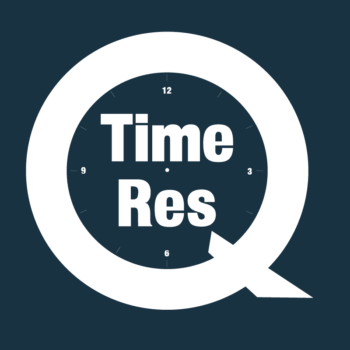Three cheers for Hong Kong, that tiny chunk of Southeast Asian rock. For the twentieth consecutive year, theIndex of Economic Freedom—compiled by The Wall Street Journal and the Heritage Foundation—ranks Hong Kong (HK) as the freest economy in the world.
Though part of mainland China since the British ceded it in 1997, HK is governed locally on a daily basis. So far, the Chinese have remained reasonably faithful to their promise to leave the HK economy alone. What makes it so free is music to the ears of everyone who loves liberty: Relatively little corruption. An efficient and independent judiciary. Respect for the rule of law and property rights. An uncomplicated tax system with low rates on both individuals and business and an overall tax burden that’s a mere 14 percent of GDP (half the U.S. rate). No taxes on capital gains or interest income or even on earnings from outside of HK. No sales tax or VAT either. A very light regulatory touch. No government budget deficit and almost nonexistent public debt. Oh, and don’t forget its average tariff rate of near zero. That’s right—zero!
This latest ranking in the WSJ/Heritage report confirms what Canada’s Fraser Institute found in its latestEconomic Freedom of the World Index, which also ranked HK as the world’s freest. The World Bank rates the “ease of doing business” in HK as just about the best on the planet.
To say that an economy is “the freest” is to say that it’s “the most capitalist.” Capitalism is what happens when you leave peaceful people alone. It doesn’t require some elaborate and artificial, Rube Goldberg contrivance cooked up by tenured central planners in their insular ivory towers. But if we are to believe the critics of capitalism, HK must also be a veritable Hell’s Kitchen of greed, poverty, exploitation and despair.
Not so. Not even close.
Maybe this is why socialists don’t like to talk about Hong Kong: It’s not only the freest economy, it’s also one of the richest. Its per capita income, at 264 percent of the world’s average, has more than doubled in the past 15 years. People don’t flee from HK; they flock to it. At the close of World War II, the population numbered 750,000. Today it’s nearly ten times that, at 7.1 million.
Positive Non-Interventionism
The news that the HK economy is once again rated the world’s freest is an occasion to celebrate the one man most responsible for this perennial achievement. The name of Sir John James Cowperthwaite (1915–2006) should forever occupy top shelf in the pantheon of great libertarians. Some of us just write about libertarian ideas. This guy actually made them public policy for millions of citizens.
The late Milton Friedman explained in a 1997 tribute to Cowperthwaite how remarkable his economic legacy is: “Compare Britain—the birthplace of the Industrial Revolution, the nineteenth-century economic superpower on whose empire the sun never set—with Hong Kong, a spit of land, overcrowded, with no resources except for a great harbor. Yet within four decades the residents of this spit of overcrowded land had achieved a level of income one-third higher than that enjoyed by the residents of its former mother country.”
A Scot by birth, Cowperthwaite attended Merchiston Castle School in Edinburgh and then studied classics atSt Andrews University and at Christ’s College at Cambridge. He served in the British Colonial Administrative Service in HK during the early 1940s. After the war he was asked to come up with plans for the government to boost economic growth. To his credit, he had his eyes open and noticed that the economy was already recovering quite nicely without government direction. So while the mother country lurched in a socialist direction at home under Clement Attlee, Cowperthwaite became an advocate of what he called “positive non-interventionism” in HK. Later as the colony’s Financial Secretary from 1961 to 1971, he personally administered it.
“Over a wide field of our economy it is still the better course to rely on the nineteenth century’s ‘hidden hand’ than to thrust clumsy bureaucratic fingers into its sensitive mechanism,” Cowperthwaite declared in 1962. “In particular, we cannot afford to damage its mainspring, freedom of competitive enterprise.” He didn’t like protectionism or subsidies even for new, so-called “infant” industries: “An infant industry, if coddled, tends to remain an infant industry and never grows up or expands.” He believed firmly that “in the long run, the aggregate of the decisions of individual businessmen, exercising individual judgment in a free economy, even if often mistaken, is likely to do less harm than the centralized decisions of a Government; and certainly the harm is likely to be counteracted faster.”
Ever since the days of John Maynard Keynes, economics has been cursed by the notion that human action should be distilled into numbers, which then become a “pretense to knowledge” for central planner types. In many collegiate economics courses, it’s hard to tell where the math leaves off and the actual economics begins. To Cowperthwaite, the planner’s quest for statistics was anathema. So he refused to compile them. When Friedman asked him in 1963 about the “paucity of statistics,” Cowperthwaite answered, “If I let them compute those statistics, they’ll want to use them for planning.”
If that sounds quaintly backward or archaic, let me remind you that the biggest economic flops of the past century were both centrally planned and infatuated with numbers. Whole ministries were devoted to their compilation because even lousy numbers gave the planners the illusion of control. But not in Hong Kong!
Statistics, no matter how accurate or voluminous, are no substitute for sound principles. Powered by an abundance of the latter under Cowperthwaite, the HK economy soared during his tenure. Writing in the November 2008 issue of The Freeman, Andrew P. Morriss noted that in his decade as financial secretary, “real wages rose by 50 percent and the portion of the population in acute poverty fell from 50 to 15 percent.” It’s hard to argue with success. After Cowperthwaite’s retirement in 1971, less principled successors dabbled in social welfare spending but they financed it through land sales, not increased taxation. Tax rates to this day are right where the old man left them.
Post Script on the Mont Pelerin Society
In September 2014, the Mont Pelerin Society—the prestigious international organization of economists, intellectuals, and businesspeople committed to a free society—will hold its next general meeting in Hong Kong. Sir John was for many years a member of the Society. As one myself, I hope to raise a glass there in his honor. We must never forget the man who proved in Hong Kong that free enterprise is good theory for many reasons, not the least of which is that, in contrast to socialism, it actually works in practice.
written by Lawrence Reed of the Foundation of Economic Education. See more.





























